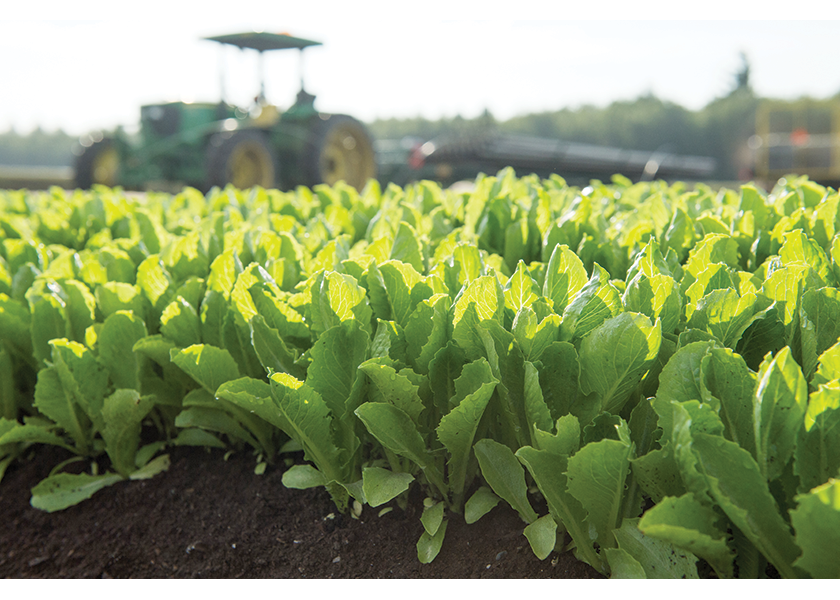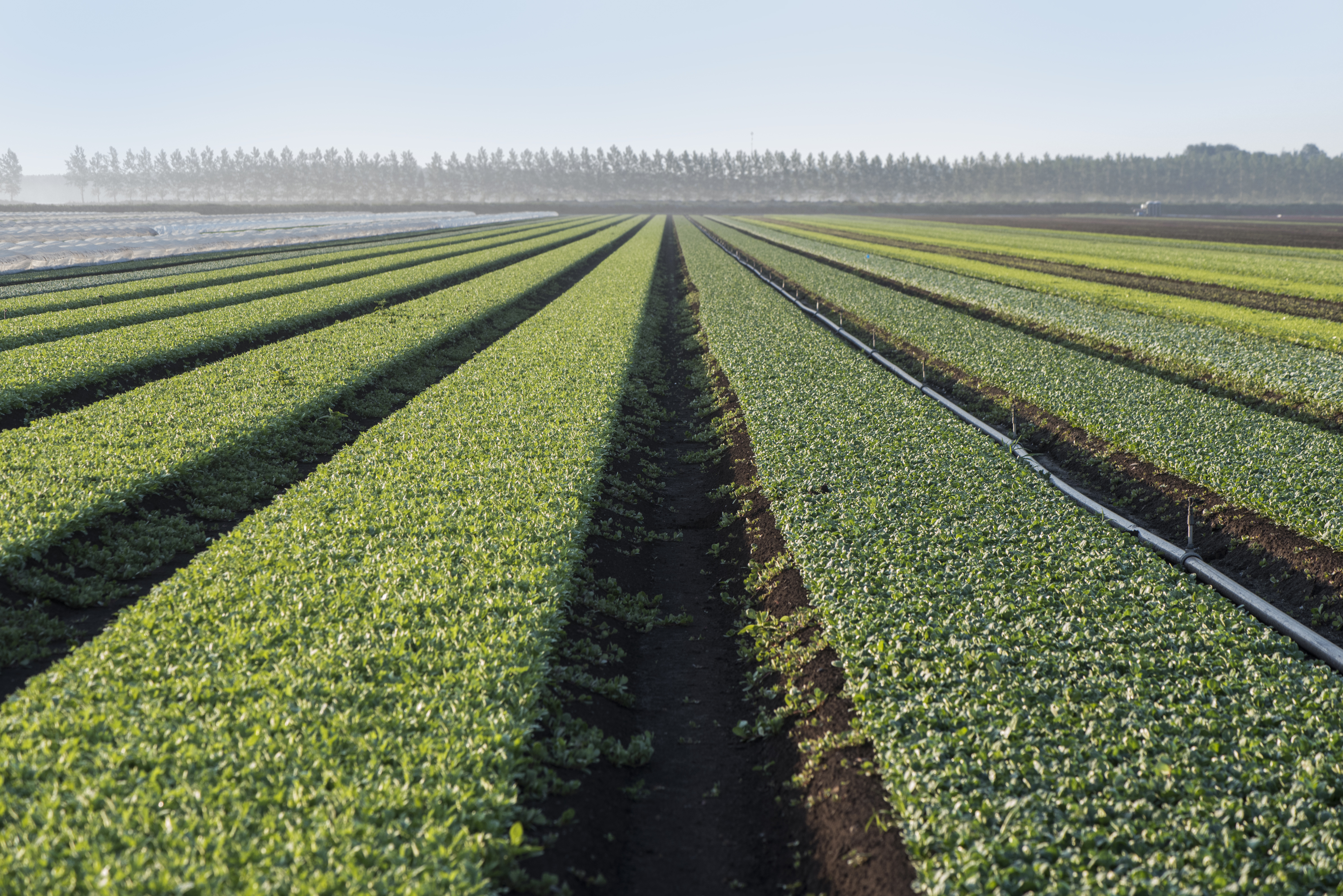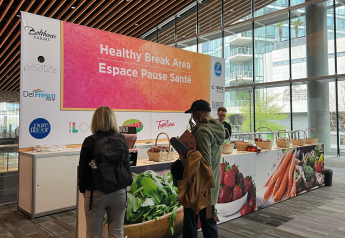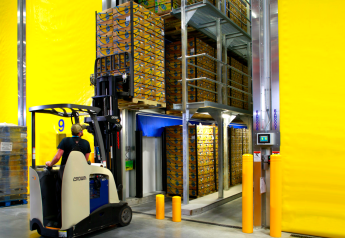Quebec crops felt the heat but kept going

In Canada’s Quebec province in the East, the Sherrington area is known as the “Gardens of Quebec” for the muck soil, or rich, moist, black earth, where many vegetables are grown.
And this year, Quebec producers aren’t having delays in the arrival of foreign labor to help plant in that soil, tend to and harvest those vegetables — at least nothing like the spring of 2020.
At Vegpro International’s Sherrington farms and packing house, most, if not all, of the regular workers from Mexico and Guatemala returned for 2021 and received vaccinations when they arrived, said Luc Prévost, executive vice president of sales and marketing.
“What we did with them last year, I think, sent a very strong message that we care, which we do, and they felt safe coming back this year,” Prévost said.
But as in the U.S., labor’s still hard to come by otherwise.
“Labor in field, plant and offices. It’s a constant challenge. Everywhere. Everything. It touches absolutely everything,” he said. “Hopefully we’ll see that turn around in the back end of 2021 and first part of 2022. Because that’s a tough challenge to solve.”
Read related: Tip of the Iceberg Podcast: Mike Mauti of Execulytics talks fall retail
Growing weather
By Sept. 1, Quebec is about two-thirds through its local growing season. August tends to be a volatile month with hail and high heat.
This season, it’s been very humid and hot, but nothing like it is in British Columbia, with dry heat, smoke and fire in some places, but still sparing Vegpro International’s farm and workers there.
Because Vegpro International received its workers on time for 2021, it could do moving irrigation again and utilize all its crop land, Prévost said.
Vegpro International started harvesting shallots the last week of August, with carrots and shallots following soon. Tender leaf lettuce should wrap up by mid-October. It’s the company’s main crop used for packaged salads, salad kits and Fresh Attitude label.
Northeast U.S. sales comprise 12-15% of the business of the Sherrington farms and packing house, Prévost said. The company moves its bulk lettuce and operations down to Belle Glade, Fla., for winter, and then serves Southeast U.S. customers too.

Changing demand
Because restaurant demand dropped so much the past 18 months, Quebec companies have tailored their offerings for the business they do have today.
Vegpro lost a lot of its romaine lettuce processor customers, which used to process and sell to foodservice operations. To adjust, the company started packaging its romaine hearts for retail, and trialing sweet baby gems for a customer.
“It’s an ideal leaf if you want to use it as a replacement for a taco shell, for dips, and of course for salads. Its (flavor is) between an endive and a heart of a romaine,” Prévost said.
Also, the company’s Coldstream, British Columbia farm had a great growing year for its new organic tenderleaf, and the plan is to ship it to customers in Quebec, where organic growing is harder to do.
“It’s better than shipping it from California to Quebec, as it’s still Canadian,” he said. “We know organic is here to stay, and if we can combine local and organic, that’s a no-brainer. Every retailer will want it.”
Quebec’s produce industry is competitive when it comes to information, know-how and natural resources such as soil, water, energy, according to the Quebec Produce Growers Association.
Read related: Government gives QPMA $750,000 for I Love Fruits and Veggies movement
“It can partially replace California as North America’s premier source of fruits and vegetables,” according to the association’s Growth Outlook, one of its special projects. “For many years now, the Golden State has been struggling with serious droughts due to climate change, which has prompted numerous U.S.-based businesses to turn elsewhere for their produce. The growth outlook for exporting fresh and processed fruit and vegetables to states east of the Mississippi is strong.”
The U.S. Department of Agriculture projects that the gap between domestic supply and demand will continue to rise, given the population growth in the area and changes in consumer habits. Imported tomatoes, peppers, broccoli, onions, carrots and cabbage respectively account for 53%, 58%, 17%, 17%, 14% and 8% of the U.S. market, and these numbers are expected to grow by 0.5 to 2 percentage points a year, according to the association.
Also, the Canadian market is changing with more demand for more nutritious food to feed healthy lifestyles.
Vegpro International’s coming greenhouse in Sherrington should double its initial 10-acre size and the goal is to one day offer soil-based, organic lettuce year-round from it, Prévost said.
Quebec produce industry’s main power source is hydroelectric, which helps the cost and energy use for greenhouses.
Future
Canadian government-recommended remote school and work allowances were supposed to lifted by September, but with a possible additional wave of COVID-19 outbreaks with the delta variant of the new coronavirus.
“For the next few months — and I certainly hope this doesn’t happen — but there’s a possibility restaurants will again be adversely affected,” Prévost said. “Here we are, at almost Sept. 1, talking about measures that had to be put in place a year ago and we’re talking about putting them in place again. Restaurants once again might be affected and slow down and when that happens retail picks up the slack. We’ll see.”
Regardless of how much workers and students are commuting, convenience items such as single-serving salad kits are sticking around, even if the demand for them slows again this fall and winter.
Read related: Study looks at best places for restaurant rebound
Many Quebec companies are starting to establish permanent remote-working policies.
“That’s going to change consumer habits for sure. You don’t need that portion-ability and portability. It’s not going to just affect salads. It will affect everything,” he said.
Here’s a sign of the times: St-Hubert, a popular quick-service chicken restaurant chain, is partnering with Vegpro International to make its single-serving chicken Caesar salad and chicken Thai salads for grocery stores.
“It’s probably a sign of time if owners of franchises of restaurants are seeing that less people can get to their restaurants, so they might as well offer it to them at grocery,” he said.
Read related: Fresh produce reaches highest year-on-year gain since March 2021







